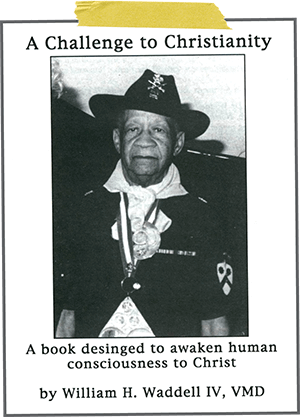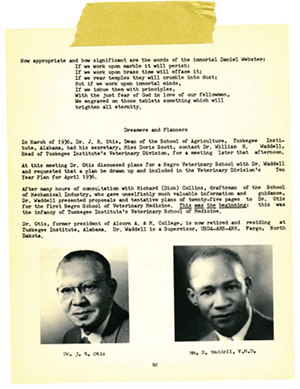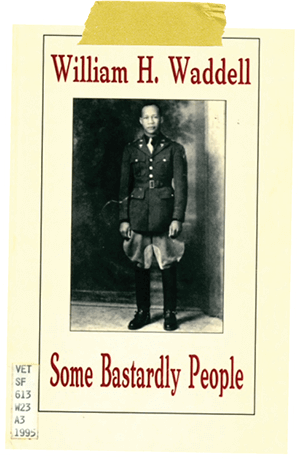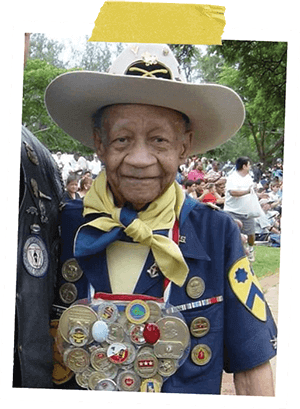“We are each other’s harvest; we are each other’s business; we are each other’s magnitude and bond.” — Gwendolyn Brooks
WHAT WOULD YOU DO IF YOU KNEW YOU COULDN’T FAIL?

HE SHATTERED THE CLASS CEILING
Dr. Waddell was born in 1908 in Richmond, Virginia. He was the son of a Virginia horse driver. It was through the love of his father’s work horses that Dr. Waddell developed an affection for animals. He began his study of veterinary medicine at Lincoln University and continued at University of Pennsylvania. Despite battling the ubiquity of racial discrimination and the economic malaise of the Great Depression, Dr. Waddell still passed the Pennsylvania State Board of Veterinary Medicine in 1935, becoming the first licensed Black veterinarian in the state. Later in his profession, he also became the first African-American veterinarian to practice in West Virginia.
HE WAS AN ADVOCATE AND PIONEER

PROGRESSIVE TO HIS CORE
Dr. Waddell’s intellectual curiosity lead him to investigate the medicinal properties of peanuts which was, at the time, cutting–edge research. Working with George Washington Carver, he harnessed one of the medical properties of peanut oil to create a creamy gemish to help treat wrinkles. He accompanied Carver to president Franklin Delano Roosevelt’s Georgia retreat where they massaged him with peanut oil to help relieve the discomfort of his paralysis. George Washington Carver and Dr. Waddell worked together from 1935 until Carver’s death in 1943. From 1935-1941, Waddell also researched calcium and pokeberry weed. After Dr. Waddell left Tuskegee, he practiced in Morgantown, West Virginia. He then moved to Fargo, North Dakota, where he supervised the eradication of tuberculosis in cattle in the great Northwest. He received accolades from the governor for his efforts.
HE WAS A PATRIOT

HE UNDERSTOOD THE IMPORTANCE OF THE HUMAN-ANIMAL BOND
Animals have been helping to protect human lives for centuries. The relationship between the military and animals was born during the Revolutionary War and matured with the creation of the U.S. Army Veterinary Corps in 1916. Dr. Waddell understood the importance of military veterinarians while serving as a Lieutenant in the United States Army. As a Buffalo Soldier, he worked as the brigade’s veterinarian to over 10,000 horses and mules. By the time he retired from service, he had earned 135 service medals.


